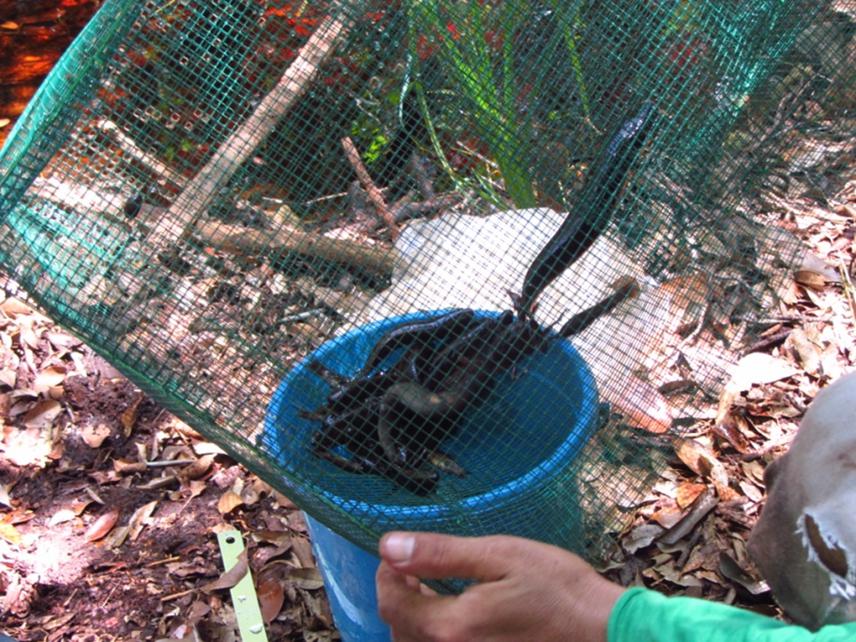Sara Anne Thornton
The project aims are:
1) to assess the fish communities in the forest and river;
2) assess the importance of fish and fishing to the local communities and
3) to evaluate the use of fish ponds as a sustainable livelihood source.

Fish caught in one of the traps in the forest.
The Indonesian province of Central Kalimantan has seen major deforestation and forest degradation due to illegal and legal logging operations and land clearing for small scale farming and plantations. With the rapid expansion of timber and palm oil plantations, Central Kalimantan is now the province with the highest rate of deforestation in Indonesia.
The largest remaining area of continuous forest left in Kalimantan (Indonesian Borneo) is the Sabangau Forest. This is a peat swamp forest (PSF), and is critically home to the world’s largest remaining contiguous population of orangutans and southern Bornean gibbon. PSFs and surrounding rivers are also important fish habitats. Due to the acidic water and unique characteristics of PSFs, the rivers and waters of these forests contain fish species which are specially adapted to this challenging environment. One study has found that if tropical PSF deforestation continues, 77% of fish species are likely to become extinct in Malaysia, Sumatra and Kalimantan, with Central Kalimantan being most severely impacted. Investigation of fish biodiversity in Central Kalimantan is therefore of high necessity, particularly in areas such as the Sabangau where communities depend on fishing as a main source of livelihood.
Fish ponds have been built alongside the forest with the aim of providing alternative incomes to the local population. This is a project funded by The Orangutan Tropical Peatland Project and is being carried out by the local Community Patrol Team directed by CIMTROP (Center for International Cooperation in Sustainable Management of Tropical Peatland). The rationale behind this project is that if these fish ponds can provide an additional livelihood for the community, then local villagers will be incentivised to support forest conservation and fire-fighting efforts.
This project will last for 12 months, and will investigate the fish provisioning service provided by the Sabangau tropical PSF in Central Kalimantan. This project will involve fish diversity and population surveys to be undertaken in the forest and Sabangau River, using traditional fish traps. Furthermore, the cultural and economic importance of fish and fishing activities to the local communities will be assessed using questionnaires, focus groups and in-depth interviews in nearby villages. Lastly, the economic, social and ecological viability of fish ponds as a sustainable livelihood option will be evaluated using the same aforementioned methods.